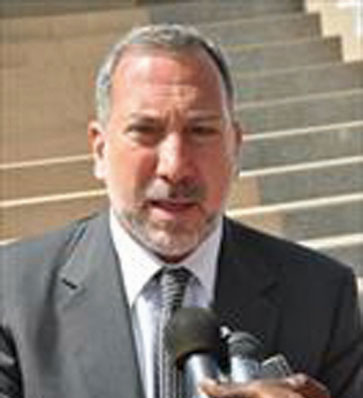
The International Monetary Fund (IMF) has released the latest development on a macroeconomic and financial programme of The Gambia it could support under its Extended Credit Facility (ECF). This followed a meeting on 5 March 2012 the IMF mission had with Vice-President Isatou Njie-Saidy, Minister of Finance and Economic Affairs Mambury Njie, Gambia’s Central Bank Governor Amadou Colley and other senior officials. The Mission, which was on a visit to The Gambia from 22 February to 6 March 2012, also met representatives of the private sector, civil society, and development partners.
The following statement was made by the head of the mission to The Gambia, Mr David Dunn, regarding the country’s economy, at the conclusion of the visit:
The IMF mission and the Gambian authorities reached agreement on a number of key policy issues, which would form the basis of a program that could be supported by a new three-year credit arrangement under the IMF’s Extended Credit Facility for low-income countries.
The program would address the high cost and risks of government’s domestic debt, while also seeking to generate resources to help finance the Programme for Accelerated Growth and Employment (PAGE), which was launched in December 2011.
The mission also discussed avenues in which the IMF could help the government manage the cost of providing immediate assistance to vulnerable groups, who have been hit hard by the severe crop failure that has struck the region. The mission is reassured that The Gambia has ample foreign exchange reserves that would help ensure stability.
The crop report for the 2011-12 season points to sharp drops (50 80 percent) in the rice, groundnut, and millet harvests, compared with the previous year. As a result, despite a remarkable jump in tourism and strength in several non-agricultural components of the economy, growth in real gross domestic product (GDP) is estimated to have slipped to about 3 percent in 2011, down from an earlier projection of about 5½ percent.
For 2012, real GDP growth is projected to be slightly negative, reflecting the main impact of the crop failure in the first half and a potentially softer tourism market later in the year. Inflation was held in check at 4.4 percent in 2011, even though fuel prices were raised several times during the year, driven by high import prices. Thus far in 2012, the price of fuel at the pump has failed to keep pace with further increases in import prices, resulting in costly subsidies paid for by government.
Government’s economic policies have strengthened considerably over the past year. Using strict cash budgeting to limit spending to available resources, government’s net domestic borrowing was reduced to just under 3 percent of GDP in 2011, down from over 4½ percent the previous year. Over the medium term, the government aims to gradually reduce net domestic borrowing to ½ percent of GDP a year by 2014. This would greatly ease pressure on interest rates and reduce government’s crowding out of the private sector in the domestic credit market.
It is expected that together with stronger government revenues, fiscal savings from lower interest on government’s debt could be directed toward PAGE priorities. Tax reform, including replacement of the general sales tax with a value-added tax (VAT), will be important for rebuilding government revenues. The government is also exploring options for the income tax, with a view toward broadening the base and lowering tax rates.
The Gambia is making progress in the fight against poverty. The 2010 household survey indicates that inclusive growth, which featured strong performances in agriculture, contributed to a marked reduction in headcount poverty (by nearly 10 percentage points since 2003, to 48½ percent of the population in 2010).
The Gambia also scores well on various education and health indicators. The mission encourages the government to work closely with development partners and aid agencies to mobilize assistance to mitigate the adverse effects of the crop failure on the country’s most vulnerable groups.
Engaging development partners is also important to help finance PAGE investments. In addition, strengthening the regulatory and institutional framework to ensure productive public-private partnerships could open up opportunities for substantial private investment.
The mission will return to IMF Headquarters, but will remain in close contact with the Gambian authorities to finalize discussions as soon as possible. The mission thanks the authorities for candid and constructive discussions and expresses its appreciation for the kind hospitality provided during our visit.
For any comments, suggestions or information please call 0022 04497441, 7678709 or better stll send an email to thepoint13@yahoo.com
Read Other Articles In Article (Archive)



